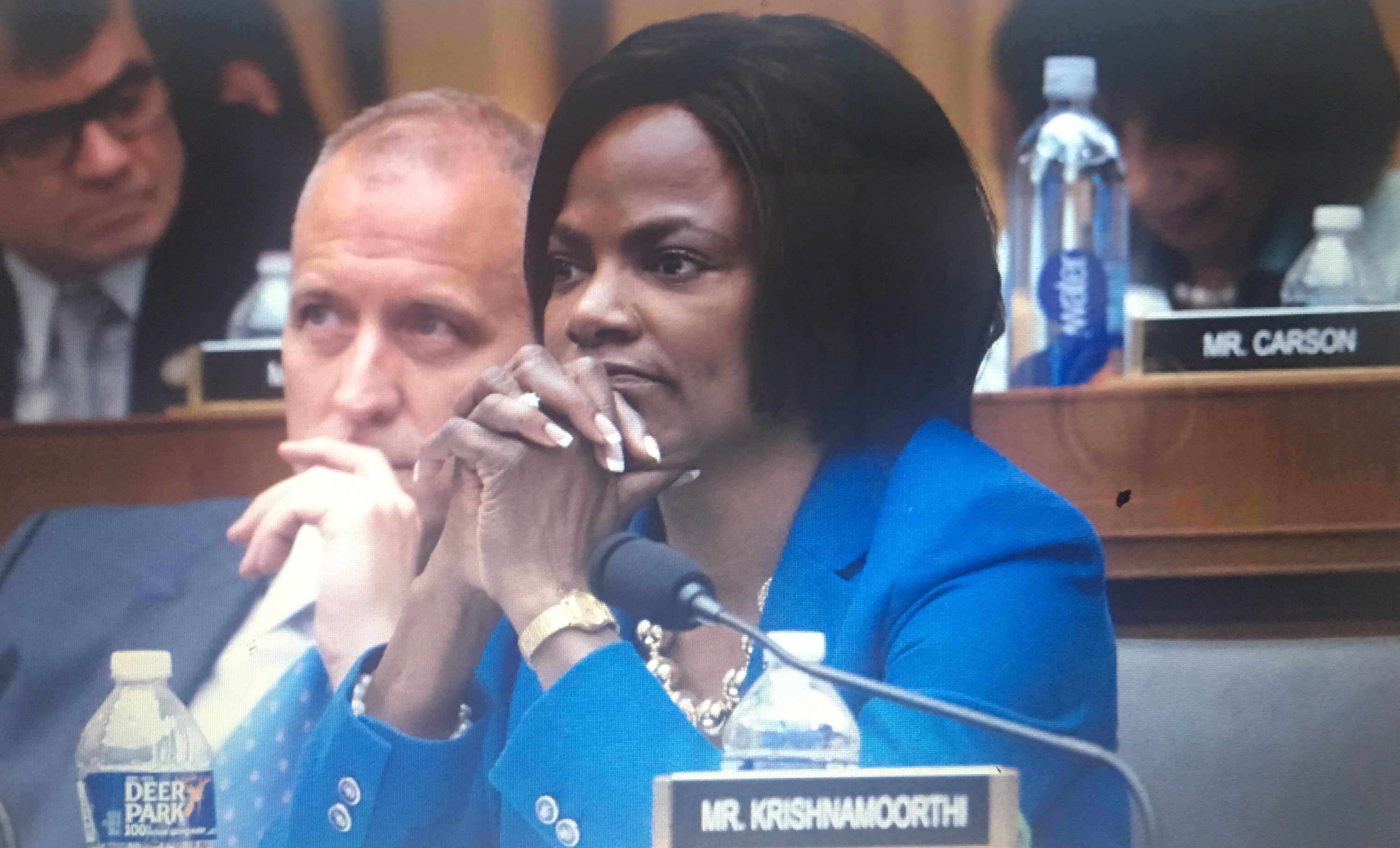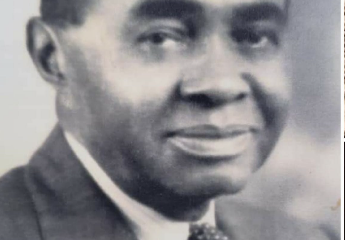Featured
The Double Standard: Why An Impeachment Probe Against President Trump Matters

Why should the impeachment inquiry against President Trump and all the president’s men matter to Black voters? An impeachment inquiry is a fancy way of stating a prosecutor’s office is gathering evidence to present to the grand jury to decide if charges should be brought. In this case, congressional investigators determine whether articles of impeachment should be sent to the full House floor for vote i.e. adjudication. Check out BuzzFeed’s run-down of the whole process.
In the words of Speaker Nancy Pelosi in announcing the impeachment proceedings, the leader of our country stands accused of “asking the President of Ukraine to take action which would benefit him [Trump] politically.” The Speaker called his actions a “betrayal of his oath of office, betrayal of our national security and betrayal of the integrity of our elections.”
Pelosi’s announcement was spurred by a whistle-blower complaint that described a July 25 call with Ukraine President Volodymyr Zelensky among other inappropriate actions. In a corroborating document, known as the White House notes on the Ukraine call, Trump asked Zelensky, “I would like you to do us a favor though…” The President should have added “s” to the word “favor” because he wanted more than one. Zelensky needed US military aide to fight Russian aggression. In our national security interest, Congress appropriated the aide for Ukraine, but Trump delayed it for months. VICE does a good job explaining the three favors that Trump wanted, so nobody has to repeat the dirt.
Bottom line: Trump stands accused of violating the Constitution by asking a foreign leader to investigate a political opponent and engaging in a coverup. Without specific articles of impeachment, observers can only speculate about whether the President is at legal risk of being charged with abuse of power or obstruction of justice or both.
In theory, nobody is above the law. Nobody includes the President of the United States. Practice is another story. Disparities in race and class infuse every aspect of the criminal justice system from police stops and arrests to sentencing and release.
In a 2018 report by The Sentencing Project to the United Nations, the researchers documented that the “United States in effect operates two distinct criminal justice systems: one for wealthy people and another for poor people and people of color.”
“The racial disparities that exist at each and every juncture of the justice system are significant and indisputable. But the reasons behind these disparities are complex and demand deeper understanding”, said Nicholas Turner, Executive Director of the Vera Institute of Justice. “They are rooted in a history of oppression and discriminatory decision making that has deliberately targeted black people; in a false and deceptive narrative of criminality; in implicit as well as conscious bias; in the legacy of structural racism and segregation.”
Every Black American understands the double standard commented Mara Gay, a New York Times editorial writer, in a panel discussion about impeachment.
Not surprisingly in a recent poll, the top issue for 55 percent of Black women age 18 to 35, also referred to as Millennials and Gen Z, was criminal justice and police reform. The sisterhood knows the difference between the concept of equal justice and the practice of criminal justice.
This perspective is why we need Black women as part of the process. Enter Rep. Valdez Venita “Val” Demings, part of the sisterhood, who reminds and educates people about the double standard. She has the chops to tackle this tough job. Demings holds the distinction of being the first woman to serve as Chief of the Orlando Police Department. And most importantly she is a member of two of the six congressional committees involved in the impeachment inquiry, namely the House Judiciary Committee and the House Intelligence Committee.
As a former law enforcement officer and a member of the US House of Intelligence Committee, she recently told Joseph Maguire, acting Director of National Intelligence, that she could not imagine asking a suspect or defendant what she should do. That is essentially what was uncovered during the first congressional hearing in the presidential impeachment inquiry.
So, let’s act like a grand jury and review the facts in evidence:
Maguire received a whistle-blower complaint from the Inspector General for the Intelligence Community Michael Atkinson. By law, the Director of National Intelligence should have sent the complaint to Congress. Instead, his staff sent the complaint to the White House and later the Department of Justice. In this case, the President of the United States and Attorney General are mentioned in the whistle-blower complaint as follows:
In the course of my official duties, I have received information from multiple U.S. Government officials that the President of the United States is using the power of his office to solicit interference from a foreign country in the 2020 U.S. election. This interference includes, among other things, pressuring a foreign country to investigate one of the President’s main domestic political rivals. The President’s personal lawyer, Mr. Rudolph Giuliani, is a central figure in this effort. Attorney General Barr appears to be involved as well.
Based on this paragraph from the nine-page complaint, it is easy to assume the whistle-blower is reacting to information heard from colleagues and not first-hand facts. Trump’s defenders may have further fueled this impression. Thankfully, the Inspector General for the Intelligence Community forcefully responded in a Sept 30 statement. The informant had first-hand knowledge too.
After an investigation, the Inspector General for the Intelligence Community deemed the whistle-blower complaint urgent, requiring Director of National Intelligence to transmit the document to Congress within 7 days. However, there was a disagreement between the Trump-appointed Director of National Intelligence and the Trump- appointed Inspector General for the Intelligence Community.
The disagreement revolved around whether executive privilege or attorney-client privilege trumped the Intelligence Community Whistleblower Protection Act of 1998. That still leaves the privilege of taking the Fifth or refusing to incriminate yourself in a criminal proceeding. Nobody is talking about the Fifth yet.
(Enter stage left two wealthy defendants in the impeachment probe.)
In a pearl-clutching moment, the subjects of the complaint, known as the defendants in the criminal justice system that average Americans must follow, sent the complaint to Steve Engel, another Trump-appointee who heads the Department of Justice Office of Legal Counsel for a legal opinion. In an apparent effort to squash a brewing scandal and send a chilling message to others, Engel decided that the whistleblower complaint is not an “urgent concern,” requiring congressional review.
Fortunately, the Senate in a rare bipartisan moment voted unanimously for Trump to release the whistle-blower complaint. And the media attention and shifting polling numbers in favor of impeachment have helped too.
Trump’s twitter tirade should not dominate the impeachment conversation. If we want our leaders held accountable to the rule of law, we must tune into the impeachment debate on social media.
In this fast-moving story, we have so many opportunities to share news and keep each other informed. The subpoenas for documents are flying around the nation’s capital. Secretary of State Mike Pompeo and Rudy Giuliani must decide how to respond to their subpoenas. Refusing to respond is a response.
The evidence is being gathered, so we must continue to analyze it. Let’s add this to our #SisterWatch list.
Holli Holliday is a practicing attorney and president of Sisters Lead Sisters Vote, a 501(c)4 nonprofit for, by and about Black women.

-

 Black History5 months ago
Black History5 months agoThe untold story of a Black woman who founded an Alabama hospital during Jim Crow
-

 Featured9 months ago
Featured9 months ago‘No Closure’ In Town Where Five Black Residents Were Either Murdered, Died Suspiciously Or Are Missing
-

 Black History10 months ago
Black History10 months agoBlack History Lost and Found: New Research Pieces Together the Life of Prominent Texas Surgeon and Activist
-

 Featured9 months ago
Featured9 months agoFounder of “The Folding Chair” Podcast Calls Montgomery’s Brawl ‘Karma’
-

 Featured9 months ago
Featured9 months agoThousands ‘Live Their Dream’ During National Black Business Month
-

 Featured11 months ago
Featured11 months agoJuneteenth And ‘246 Years Of Free Labor’ Are Key To Conversations About Reparations









